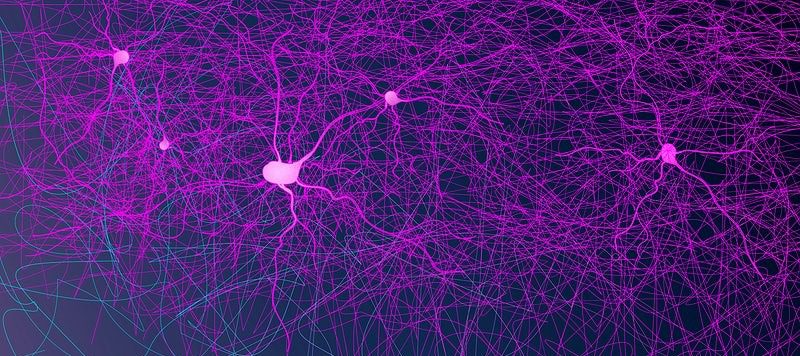Pinelands: Content reviewed by Christian Losch, LCSW, LCADC, CEO of Pinelands
Addiction is a complex disease that significantly impacts a person’s brain and body. Every time a person uses substances, their mind and body are altered.
With constant and repetitive use, distinct changes happen to emotional, physical and cognitive functioning that becomes increasingly difficult to reverse over time. That said, recovery from substance use and addiction is always possible.
To fully grasp the many effects of substance use on the mind and body, it is essential to address how a sober mind and body function compared to when it is under the influence of a substance. Do you know how your brain functions while you’re sober?
How does a sober human brain function?
Our brain is the most complex organ in our entire body. Even after decades of research, there still are so many unknowns about how the brain operates.
What we do know is that the brain is responsible for carrying out all functions of the mind and body. It regulates our bodily functions, controls our thoughts and memories and allows us to interpret our senses and experiences. In short, your brain is you.
Scientists and researchers recognize that our brain functions much like a computer network, with billions of tiny messenger cells communicating with one another to carry out functions of the brain and body. These cells are called neurons, which are bundled up into organized circuits and networks in different parts of the brain.
These networks of neurons are constantly communicating back and forth with each other to coordinate and perform specific functions. Neurons send these messages by releasing neurotransmitters into the synapse (the gap) between them and the other neuron. When neurotransmitters cross the synapse, they attach to receptors on the receiving neuron and activate and alter it.
Substance use alters brain functioning substantially.
Now that we better understand how the brain carries out functions while it’s sober, it is much easier to recognize how substance use impairs brain functioning. Substance use interferes with how neurons communicate with one another, with every drug interrupting differently.
For example, marijuana can attach to and activate neurons without neurotransmitter signals. The chemical structure of marijuana mimics the form of natural neurotransmitters in the body. Although this seems to be a natural way of encouraging neuron activation in the brain, the chemicals from marijuana attach to receptors differently than natural neurotransmitters. Marijuana causes these receptors to send abnormal messages throughout different brain networks.
Stimulant drugs, such as cocaine, cause neurons to release dangerously large amounts of natural neurotransmitters throughout the brain. This reaction amplifies regular communication between neurons, causing overwhelming stimulation to the brain and body.
Substance use interferes with proper dopamine function in the brain.
There are over 100 different neurotransmitters that are constantly at work in the brain. There are several neurotransmitters that you might recognize already, such as serotonin and dopamine. These are two chemical messengers that play an essential role in the pleasure and reward experienced from substance use.
Dopamine is a natural brain chemical that helps us to feel good. It is responsible for allowing us to experience feelings of pleasure, motivation and satisfaction. In a sober state, we can recognize dopamine surges occurring in the brain when we experience feelings of gratification for achieving something.
Nearly every substance produces an excessive amount of dopamine in the brain. These surges of dopamine occur in the brain region called the basal ganglia. This brain area is responsible for recognizing and memorizing feelings of pleasure and reward and motivating behavior that directly increases these feelings.
Whether drug use happens one time or repetitively, the brain quickly learns that substance use facilitates these powerful feelings of pleasure. With repetitive use, brain circuits adapt to a new normal, eventually needing more substance to feel heightened experiences of pleasure and reward. This process describes drug tolerance.
Nearly every neurotransmitter and area in the brain is affected by drug use. Recognizing the impact that substance use has on the neurotransmitter dopamine only begins to scratch the surface of how drug use alters brain functioning.
You can break the cycle of addiction in the brain and body.
At first, substance use might be a choice. After several uses, the brain and body remember the temporary feelings of pleasure that substance use can produce. Substance use no longer becomes a choice but instead is motivated by needing to feel that new experience of normal.
Many mechanisms are compromised with substance use, such as self-control, judgment, and decision-making. Addiction and substance use overrides the ability to display this self-control, which is why so many people fall into the cycle of addiction and relapse.
The only true way to break the cycle of addiction is to stop substance use entirely. That way, the brain can reverse any adverse changes in brain functioning. Although recovery from substance use and addiction takes commitment and time, it is necessary. You deserve to have control over your life again.
Pinelands Recovery of Medford recognizes how complicated drug use is on both the mind and body. We believe it is essential to begin recovery with staff that understands what you are going through. At Pinelands, much of our team has been in your shoes. Although it might seem intimidating, we know how deserving you are of a life free from the consequences of substance use. For more information about the effects of addiction or our treatment center, please call us today at (877) 557-5372.
